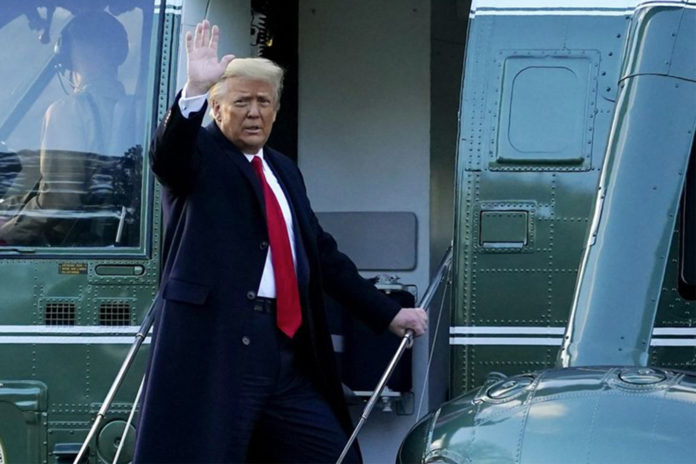
The United States presidential election is only a few months away and the battle for the White House between Kamala Harris and Donald Trump was put on full display in their debate on Sept. 10.
Jamie Gillies, professor of communications at St. Thomas University, is currently teaching a 2024 U.S. Election course. Watching the debate was his students’ first homework assignment.
“Trump hurt himself, somewhat,” he said. “He didn’t win any of [the previous] presidential debates either and the election still came down to 100,000 votes.”
Debate questions ranged from immigration policy to the Jan. 6 insurrection, all leading to a heated 90 minutes between the two leaders.
According to the Guardian, going into the debate Harris and Trump were neck-in-neck in points on Sept. 9. As of Sept. 19, her lead has inflated to 2.6 points.
Despite this, it may not be enough according to Gillies.
“She needs a four or five point lead nationally in order to probably win. That’s what Biden needed and Hillary didn’t have that,” said Gillies.
The debate garnered a much larger audience than the previous Trump vs. Biden debate.
The key takeaway from the debate was that Trump lacked composure and was baited into bad positions. CNN reported that Trump made upwards of 30 false claims during the course of the 90 minutes.
Related: ‘Both candidates are weak’: STU prof previews Biden vs. Trump part two
The most outlandish being his claim of migrants eating people’s pets in Springfield Ohio.
“Before he was very good at making a point … about something that’s clear, that voters can understand, whether you agree with it or not,” Gillies said. “This time it came out rambling.”
While Biden’s age was a big point of contention in the last debate, the youth of Harris in comparison to Trump flipped the narrative. This does not, however, mean she will overwhelmingly win the youth vote.
“There are some issues there that are causing her strife with younger voters,” said Gillies. “Her position on Gaza and Israel … her policies on anything from student loans to the economy.”
Harris commented on the Israel-Palestine war in the debate noting that she is for a two-state solution. She made no mention of student loan forgiveness.
The strategy of Harris seemed to bank on Trump indicting himself rather than attacking him.
“By letting him talk more than her, it actually probably benefited her.”
While the race is as close as can be leading into the Nov. 5 election, Gillies gave a very slight edge to Harris. He said she may beat out Trump to gain advantage in Wisconsin, Michigan and Pennsylvania — three key swing states.
All three swing states polls show Harris having a slight advantage over Trump, with gaps of plus one, plus five, and plus six, respectively.
Gillies continued, “if she wins those three and Omaha and loses rural Maine, she’s at 270, that’s all she needs.”
However, it is by no means a cut and dry election. With a month to go until election day, much could still go awry. Even if everything goes right within the campaign, ‘factors outside Harris’ control may ultimately sway the voting populous.’
“If something happens – foreign policy crisis … economic issues start to become overwhelming – any of these other things that can happen between now and the end of October, you have to give the edge to Trump.”
“It just may not be enough for Harris.”
